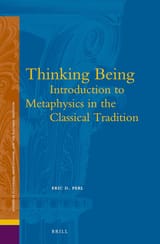>>24674516
As Dionysius the Areopagite puts it: it is wrong to say of God that He exists and it is wrong to say that He does not exist. But of the two, it is more wrong to say He does not exist."
Apophatic theology is indeed a cornerstone of the ideas I mentioned. I am familiar with Eriugena. In terms of God's nothingness, he makes a distinction between "nothing in virtue of absence" and "nothing in virtue of excellence." God is the latter.
For Aristotle, that God is pure actuality would dictate that God is pure form. But, thanks to "Neoplatonic" insights (scare quotes because some of these were actually borrowed from "middle Platonists" Christians, Jews, and Gnostics, such as Origen, an older contemporary of Plotinus in Alexandria, or Philo) we are not forced to equate actuality with limiting form. There is the idea of a "limiting essence" in Saint Maximus the Confessor, Saint Thomas, or the Islamics for instance (developed in different ways of course).
However, we aside from the via negativa, there is also the analgoia Entis, the path of analogous predication of God, who is revealed in creatures (Romans 1:20; for example, the two first stages of Saint Bonaventure's Mind's Journey Into God)
4chan Search
2 results for "deda5621c189dbaac7882ee31d6b06c0"
>>24533445
That's going to be difficult because it's an extremely different paradigm from modern secular materialism, even though the other grows out of a particular sort of Protestant theology and volanturism and nominalism.
Pic related is fairly accessible though. It starts with Parmenides, then does Plato, then Aristotle, then Plotinus, then finally a Christian in Aquinas, but the background is quite relevant.
That's going to be difficult because it's an extremely different paradigm from modern secular materialism, even though the other grows out of a particular sort of Protestant theology and volanturism and nominalism.
Pic related is fairly accessible though. It starts with Parmenides, then does Plato, then Aristotle, then Plotinus, then finally a Christian in Aquinas, but the background is quite relevant.
